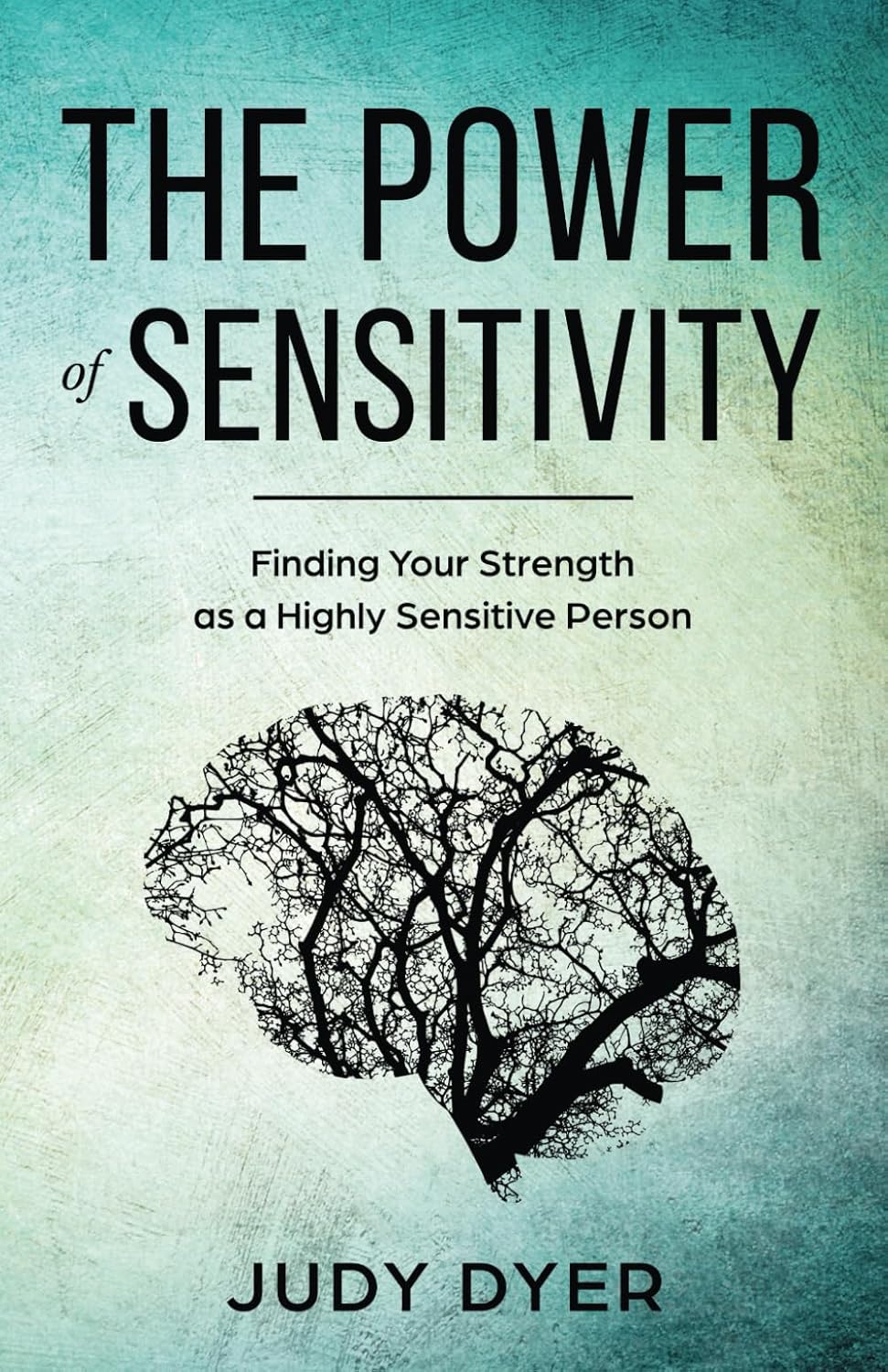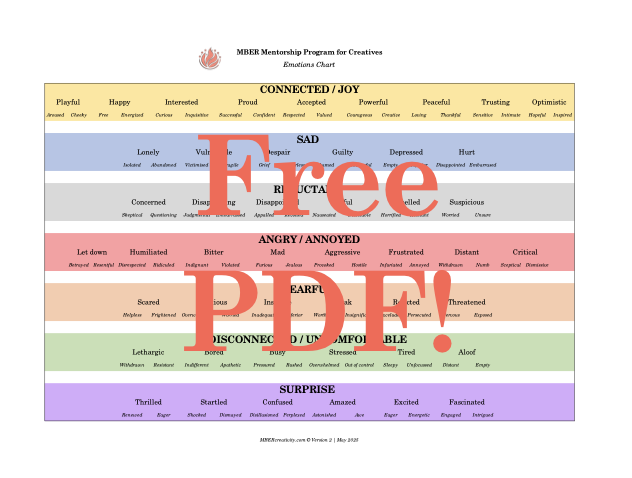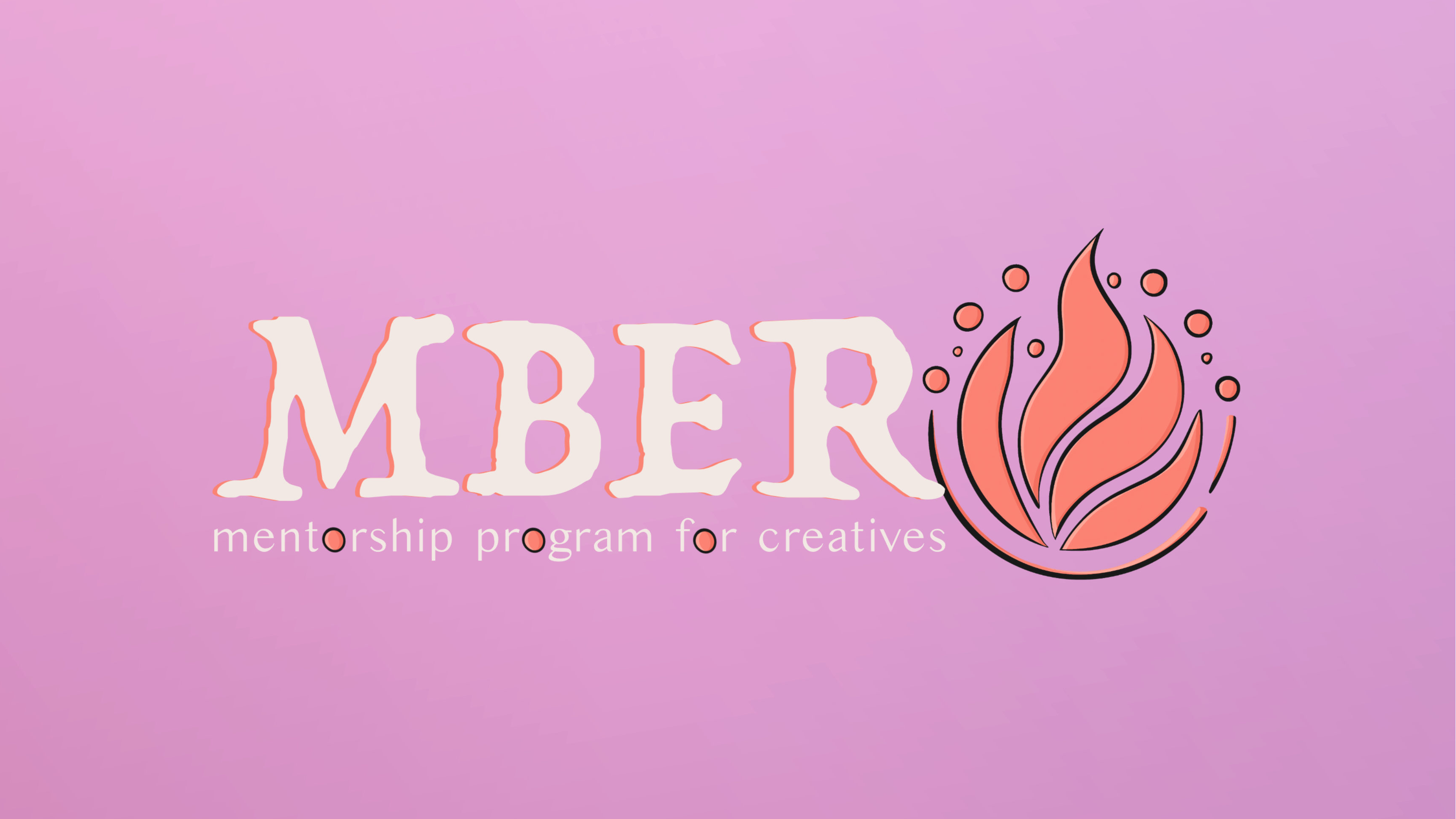
Being called “too sensitive” can sting, especially when emotions are genuine and come from caring deeply. I’ve noticed that people often confuse sensitivity with overreacting, but these two things aren’t the same. Sensitivity is about noticing and responding to emotions, while overreacting is about letting those emotions take control in a way that doesn’t fit the situation.
My own adventure with emotions has shown me that sensitivity can be a real strength. It’s made me better at listening, understanding, and connecting with people. But, there are times when what started as a healthy emotion spiraled into something overwhelming. This made me want to understand why that happens, how to spot the difference, and most importantly, how to reclaim my emotional balance.
If you’re reading this, you’re probably searching for the same answers, or maybe trying to support someone who seems to feel things a little deeper.
This guide is for anyone who wants to understand their sensitivity or help someone else who feels emotions strongly. I’ll share ideas from psychology, day-to-day examples, and practical strategies that have helped me respond with care—without letting feelings take over. By the end, you’ll have a clear sense of what sensitivity and overreaction really mean, and tools you can use to stay balanced without shutting off your emotional depth. Let’s get into it.
What Sensitivity Really Means
Sensitivity means noticing things that others might miss, such as picking up on small changes in people’s tone, mood, or body language. This also includes responding to beauty, kindness, or sadness in the world. Sometimes, you can get teary-eyed from a moving song or someone’s thoughtful gesture. These experiences are real, and they come from being in tune with emotions and the feelings of others.
Sensitivity is about empathy and awareness—it’s not about weakness, but about being deeply connected to yourself and those around you.
Sensitivity Isn’t Weakness
You can try thinking a bit differently regarding being sensitive:
- “I feel things deeply, which means I care deeply.”
- “I notice when someone is hurting or when something feels off, even if no one says anything.”
- “I’m sometimes the first to offer comfort or to celebrate someone’s success.”
- “Many creative people, leaders, and caregivers are sensitive; their strengths come from insight and empathy.”
Society sometimes paints sensitivity as a flaw. I’ve heard people say things like “just toughen up” or “why does that bother you so much?” But in reality, sensitivity has helped me build strong relationships, solve problems, and bring warmth into my daily life. In creative fields, emotional awareness is often a superpower that sets people apart.

Different Types of Sensitivity
- Emotional Sensitivity: Responding quickly and deeply to feelings—your own and those of others.
- Physical Sensitivity: Being sensitive to things like noise, light, touch, or certain environments.
- Intuitive Sensitivity: Picking up on things through gut feelings or subtle cues.
We all have unique blends of these sensitivities—what feels intense for me might be barely noticeable for someone else. That’s part of what makes emotional life so interesting.
What Overreaction Looks Like
Overreaction usually means having a response “that is bigger than what the situation calls for.” Obviously, this is inherently subjective, but it’s a good point of reference when approaching real-life situations.
- When you overreact, your body and mind might go into overdrive.
- Your heart races, you might raise your voice, cry suddenly, or shut down. Later on, you can often realize the reaction was stronger than needed, and it doesn’t always match what actually happened.

Common Signs of Overreacting
Other times, it’s not just about the amount of feelings, but about how long they last or how much they interfere with daily life.
- Reacting with intense anger, sadness, or anxiety to a small mistake or comment.
- Trouble calming down after something upsetting happens.
- Replaying conversations in your head, feeling stuck in the emotion.
- Apologizing later for things you said or did “in the heat of the moment.”
Overreaction doesn’t always mean yelling or crying. Sometimes, it shows up as withdrawing, being silent, or avoiding people or situations that remind one of painful feelings.
- If you feel you can’t control what you say or what you do, you may be experiencing an overreaction.
The important takeaway here is that overreaction keeps you from responding to the present because you can be caught up in the intensity of the feeling, not the reality of the situation.
The Science Behind Emotional Sensitivity
Emotional sensitivity has deep roots in the brain and nervous system. For some people, including me, this sensitivity feels almost hardwired. Some of us have nervous systems that react more quickly and powerfully to emotional cues, and this isn’t something we can just “turn off.” Being aware of this helps me approach my own sensitivity with compassion.
How the Brain Processes Emotion
- Amygdala:
- This part of the brain responds to threats and strong emotions. When someone is feeling sensitive, the amygdala is acting quickly to notice potential emotional triggers.
- Prefrontal Cortex:
- This region helps with thinking, decision-making, and managing impulses. Emotional balance comes from the prefrontal cortex working together with the amygdala, helping you pause and reflect before reacting.
Research shows that genetics, childhood experiences, and even daily habits shape how our brains process and manage emotions (American Psychological Association). For more on the science, check credible resources like the National Institute of Mental Health. These resources offer science-backed techniques to keep emotional responses in check without ending up cold or disconnected.
Empathy and Sensitivity
Empathy is part of sensitivity, too. My brain naturally mirrors other people’s emotions, making it easier to feel what someone else might be experiencing. This can be a superpower, but it sometimes leads to overwhelm if I don’t protect my own boundaries. Practicing empathy also helps me build connections, but it requires knowing when to step back and care for myself as well as others.
And according to Dr. Elaine Aron, about 20% to 30% of the population are considered highly sensitive!
You can find more about this and the strength found in sensitivity through Judy Dyer’s book : “The Power Of Sensitivity.”
“I honestly don’t know how lucky I got to get this book. Can not find the words to describe the inner feelings that not one single person I’ve ever met in my entire life has EVER been half as close to my heart as you are to me since I began reading this.”
– 5/5 customer review on Amazon
Why People Confuse Sensitivity and Overreaction
Many people don’t know the difference between a sensitive response or an overreaction. I’ve had moments when a regular emotional reaction—like feeling sad at a movie or frustrated by a friend’s behavior—was seen as being “too much.” At the same time, I’ve also seen people ignore their true feelings, thinking this makes them strong. When the line between showing emotion and being overwhelmed by emotion is blurred, it’s easy for people to make quick judgments.
Why This Mix-Up Happens
- Stress: High-stress environments; workplaces, busy households; often reward stoicism and quick comebacks rather than thoughtfulness and care.
- Cultural Beliefs: Some cultures value hiding or controlling emotions, which can make sensitivity feel out of place.
- Misunderstanding Emotional Needs: If someone didn’t grow up learning how to label and process emotions, they might not recognize a healthy emotional response versus going overboard.

The Impact on Relationships
When people confuse healthy sensitivity with overreaction, it can damage trust. I’ve seen friends and family pull away because they didn’t want to be judged, while others build closer bonds by embracing emotional honesty. Knowing the difference helps everyone communicate and relate better. Supporting one another starts with understanding, not dismissing, what emotions really mean.
How to Recognize Healthy Sensitivity
Healthy Sensitivity in Daily Life
- I ask questions when someone seems upset, rather than ignoring their mood.
- I notice when my own energy changes and make space for my feelings.
- I feel excited about little things—like a compliment or a random act of kindness.
- I apologize and reflect after a tough conversation, but don’t dwell for days if things were handled respectfully.
Healthy sensitivity means responding thoughtfully without getting stuck. I’m able to express what I feel, listen to others, and set boundaries when I need to. When in balance, sensitivity helps me enjoy life’s highs and lows with greater awareness.
Questions to Ask Myself
- Are my feelings helping me connect with people, learn, or solve problems?
- Do I feel in control of my reactions most of the time?
- Can I let go of an emotion after expressing it?
If I answer yes most of the time, my sensitivity is working for me—not against me. This self-check can guide our growth into truly understanding ourselves and how we relate to others.
How Overreaction Develops: Personal & Social Roots
Overreaction often has a history. Past experiences—like being teased, left out, or dismissed—sometimes make an emotional system more reactive, especially under stress. Other common triggers include:
- Unprocessed Emotional Pain: Old wounds can resurface when a present situation feels similar to a painful memory.
- High Stress Levels: When overwhelmed, it’s easy to react too strongly to minor setbacks.
- Lack of Sleep, Food, or Support: Physical and social needs have a huge impact on how I respond emotionally.
It’s been helpful for me to look at patterns: Do I tend to overreact in certain situations or with certain people? Keeping a journal or reflecting after the fact can help sort out what’s really going on. Talking to a counselor or close friend about repeated patterns can bring outside perspective and speed the process of healing.
Overreactions rarely happen “for no reason”—they usually have traces that run deeper than the current situation.

How to Nurture Emotional Balance
I’ve learned to manage my emotions with practice, patience, and some trial and error. Finding balance means allowing myself to feel but not letting emotions make every decision. It’s a lifelong process, but over time, it gets easier to pause and pick the next move, even when things get tough. If you’re hoping for more stability, these steps can help you, too.
Step-by-Step Process for Emotional Balance
- Pause Before Reacting: When something triggers me, I give myself a moment to breathe before speaking or acting.
- Label the Emotion: I ask myself, “What am I really feeling? Is it anger, embarrassment, fear, or disappointment?”
- Match Reaction to Situation: I think about whether my planned response matches the importance of what happened.
- Communicate Clearly: I let others know what I’m feeling and why, using “I feel” statements.
- Practice Self-Compassion: If I do overreact, I remind myself that everyone makes mistakes. I apologize if needed and move on.
Online Course to Further Your Understanding
I’ve recently released an online course through Udemy to help others gain a strong foundation for understanding emotional intelligence and creativity. Much of the material relates to what we’ve discussed in this article and goes further into the nuts and bolts of it all.

Emotional Intelligence & Creativity in Parenting:
If you’re a parent or a mentor helping a younger individual gain traction in life through emotional intelligence, I highly recommend this course! And I would love to see you there.
Habits for Long-Term Balance
- Regular Reflection: Journaling or talking with a trusted friend about big feelings helps me spot patterns and prevent future overreactions.
- Mindfulness or Meditation: Even just five minutes a day keeps me grounded and aware of my triggers.
- Healthy Routines: Consistent sleep, exercise, and meals make a huge difference in how well I manage emotions.
- Boundaries: I set limits around people or environments that constantly drain or overwhelm me.
There’s no “perfect” way to stay balanced, but starting small—choosing one habit to add this week, and building from there—can make the path easier and more sustainable.
Helping Others Understand Sensitivity
Supporting sensitive people, whether in family, school, or work settings, can be very rewarding. I’ve been helped most by people who listen, ask questions, and avoid judging my feelings. Here’s what works:
- Listening: Give your full attention when someone shares their feelings.
- Validation: Acknowledge their emotions without trying to fix or downplay them.
- Ask Before Giving Advice: Sometimes support means just being there, not solving a problem.
- Offer Predictability: Keeping plans clear and expectations simple helps sensitive people feel secure.
If you’re supporting a sensitive friend or loved one, encourage them to express what they need. This keeps the relationship honest and caring for both sides. Remind them their emotions matter, and that it’s okay to ask for space or support, depending on what feels best.

Parenting, Teaching, and Leading Sensitive People
As a parent, teacher, or leader, I’ve found that guiding sensitive kids or team members requires patience and clarity. These strategies make a difference:
- Model Healthy Expression: Show what it looks like to talk about feelings and manage reactions in calm, respectful ways.
- Offer Consistent Feedback: Point out both moments of calm problem-solving and times when emotions run high, without judgment.
- Create Safe Spaces: Provide quiet areas or breaks for those who get overwhelmed easily.
- Give With Choices: Let sensitive people have a say in how they learn, work, or take breaks. Autonomy builds resilience.
Supporting sensitivity with structure and empathy creates a happier, more productive environment for everyone. Letting sensitive people find their voice and move at their own pace is a powerful way to help them grow.
Common Questions & Troubleshooting

How do I know if I’m sensitive or just overreacting?
- If your emotional response matches the situation and helps you connect, it’s likely sensitivity.
- If your response feels out of proportion or you regret it later, it could be an overreaction.
What if people keep telling me I overreact?
- I try to reflect on those moments. If it’s a pattern, I work on pausing and thinking before I respond.
- Honest conversations with trusted friends can also shed light on my blind spots.
Can I become less sensitive?
- My goal isn’t to be less sensitive, but to manage my responses.
- Sensitivity itself isn’t a problem; losing control of my emotions can be. With practice, I’ve gotten better at responding rather than reacting.
Final Thoughts & Practical Next Steps
Distinguishing between sensitivity and overreaction has helped me keep my relationships strong and my own mindset clear. I’ve come to see my emotions as valuable information about myself and the world. With the right support, habits, and self-awareness, anyone can keep their sensitivity and find steady emotional balance. If you want to build deeper connections and handle emotions with more skill, you’re already on the path just by caring enough to read and think about these topics.
Action Plan for Emotional Balance
- Notice when you feel a strong emotion. Pause and name it.
- Check if your reaction matches what’s actually happening.
- Try one self-care or reflection habit this week—journal, meditate, or share with a friend.
By putting these steps to work, I’ve learned to embrace my emotions, respond thoughtfully, and live a more balanced life. I can keep the depth that makes me who I am and avoid getting swept away by emotions that don’t serve me. Bottom line: Being sensitive is a gift when paired with self-knowledge and practice. Everyone can check out ways to make it work for their own life and relationships, and with time, those strong feelings can become a real asset that enriches every part of the human adventure.
Another important tool you can use to broaden your emotional landscape or just use as a fresh reminder of all that we, as humans, can experience emotionally, is MBER’s “Emotions Chart,” which you can download for free just by signing up for MBER’s newsletter!
Consider MBER’s Online Course:
“Creativity & Emotional Intelligence in Parenting” on
Unlock your creative child’s full potential by learning how emotional balance directly fuels creativity through strengthening emotional intelligence.
INCLUDES:
- Full course available as a downloadable audiobook (MP3) & eBook (PDF)
- 10 downloadable PDFs, including full course text, charts, research, inspirational quotes & more
- 4 quizzes to test your comprehension of the material
- Multiple activities to encourage interaction with the course (including a drawing challenge)







In this powerful and practical course, you’ll discover why emotional intelligence is not just helpful in parenting—but essential—for raising creative, confident, and resilient children.
This course is helpful for those searching for:
- “How to motivate a creative child”
- “Helping kids with emotional sensitivity”
- “Supporting highly sensitive child with their creativity”
** Whether your child is an artist, dreamer, problem-solver, or bursting with big ideas, this course will equip you to support their imagination while building the emotional strength they need to thrive. **
Parenting for creativity and emotional intelligence is not the easiest due to its inherent conceptual nature. But.If you’re a parent, caregiver, or mentor who wants to learn how to nurture creativity with more confidence—this course is for you.
Presented by MBER Mentorship Program for Creatives & your instructor, Chase Chandler, M.M.
What You’ll Learn in the Course:
– Why emotional safety is a secret ingredient in creative growth
– How to spot hidden emotional blocks that limit self-expression
– Simple strategies to fuel resilience and imagination at home
– Brain-based insights into flow, fear, and emotional regulation
– Practical techniques to encourage curiosity and courage
– How to model and teach emotional intelligence (without lectures!)
Course Modules Include:
- The Emotional-Creative Connection
- Myths About Creativity & Emotions
- Flow vs. Shutdown in the Brain
- Spotting the Signs of Emotional Burnout
- 3 Simple Techniques to Support Balanced Creativity
- Drawing Task: The Single-Line Smile
- Plus, personal stories from the instructor’s real-life creative journey
Included Downloads:
- Full Course Text PDF
- Proportional Theory of Time Perception Research
- Drawing Task PDF + Chart
- Every Child Is an Artist – Printable Insight PDF
- Spotting the Signs Checklist
- 3 Supportive Techniques PDF
- Creative Support Snapshot: Course Assignment PDF
- 25 Inspirational Quotes PDF
- Audio Version of Entire Course (MP3)
“Children must be taught how to think, not what to think.” — Margaret Mead
By the end of this course, you’ll have a deeper understanding of how to raise emotionally intelligent, creatively courageous children—ready to explore the world with confidence.
- You don’t have to be perfect.
- You just need to be present.
“Children are not things to be molded, but are people to be unfolded.” — Jess Lair
All you need to do is click “Enroll Now“ and begin this transformational experience. As with all Udemy courses, you’ll have lifetime access, plus a 30-day money-back guarantee. There’s nothing to lose—and everything to gain.
See you inside the course!
– Chase








This is such an important distinction that isn’t talked about enough. I really appreciated the way you unpacked how being sensitive doesn’t automatically mean someone is overreacting—it’s often just a reflection of how deeply they process emotions or situations.
From personal experience, I’ve often been labeled as “too sensitive” in both personal and professional settings. Over time, I’ve learned that it’s not a weakness, but actually a strength when managed with self-awareness. It’s helped me connect more deeply with others and notice things that often go overlooked.
Have you found any strategies particularly helpful for communicating emotions clearly without being dismissed as overreacting?
This post really hit home—thank you for opening up space for this kind of conversation.
Wow, I appreciate your kind response! Thank you for your thoughtful question. Strategies to better communicate is SO dependent on the situation, but often, it’s when showing your emotions that can be misinterpreted. Not that you shouldn’t show your emotions, but in some situations it’s better to observe what you’re feeling and express them without an emotion coloring what it is you’re saying. Objectivity is extremely helpful when communicating something that is so inherently subjective, so rephrasing something like “You make me sad” to be more like “What you have done has made me feel sadness” can really help change interpretations or any tendencies to jump to conclusions on the receiving end. Great topic of conversation, though!
This topic really hits home, especially in a world where emotional responses are often judged harshly. I’ve found it challenging to navigate the line between genuine sensitivity and what others might label as overreaction. One thing I’m still figuring out is how to validate my own feelings without second-guessing them based on others’ reactions. Do you think emotional intelligence training or self-reflection tools can help someone become more aware of that distinction? Also, have you noticed if cultural or gender norms tend to influence how sensitivity is perceived or dismissed?
Validating your own feelings without second-guessing is definitely quite a ball of yarn to detangle. Sometimes, the best reaction is no reaction, and to set the whole thing down for a while. This distance from it can often be a helpful tool to spark some objectivity in the situation. And the questions you’ve asked are great! But also highly involved – they might require dissertations to fully understand. But simply, my answer would be “yes” in that cultural and gender norms do tend to influence how sensitivity is perceived. Great conversation starter!
This post really spoke to me—thank you for addressing this often misunderstood topic with so much care and insight.
As someone who’s been called “too sensitive” more times than I can count, I’ve often second-guessed my emotions instead of honoring them. I love how you explained that being sensitive isn’t the issue—it’s about becoming aware of our response and learning to respond, not react.
It made me think: how do we handle situations where someone dismisses our sensitivity as overreaction, even when we’ve explained ourselves calmly? And how can we model healthy emotional expression in environments that tend to suppress it, like the workplace or even the church?
Oh, I’m sorry to hear that you can relate to being called “too sensitive,” though I am glad you have taken so much from the article. There is power in being emotionally ready to interpret the world around you! It just takes a bit of time to practice regulation and resilience. To answer your questions, in my opinion, there is a point where you can only explain so much (or do so much) to help others understand. Sometimes, time is our greatest ally as “sensitive people,” because the more people think about what you’ve said, the more they’ll start to understand it. There’s a time and a place for such conversations and growth in emotional awareness, so different environments can alter our approach. Unfortunately, there are so many variables in those kinds of environments that my greatest advice would be to trust your gut and remember to rely on consistency over time being your greatest ally in approaching these situations. You can’t always change someone’s mind overnight! But it is a tricky situation sometimes. I hope this helps, at least a little. But keep thinking on it, yourself, and as long as you’re trying, you’ll be improving.
This is such an important topic — especially in a world where emotional awareness and communication styles vary so widely. The distinction between sensitivity and overreaction is subtle but powerful, and this article does a great job exploring that balance. I enjoyed the explanations, the questions to ask yourself in each situation and the step by step guidance.
I especially appreciated the section on intent vs. impact — it really made me reflect on how easily misunderstandings can escalate when we don’t take the time to pause and assess. Being sensitive can be a strength when it’s grounded in perspective, not just emotion.
Thanks for shedding light on this — it’s a conversation more of us need to be having!
Wow, thank you so much for your inquisitive response to this article! I agree with you on all those points you’ve made – once we really start looking into emotional intelligence and (as you mentioned) intent vs. impact, things start becoming more and more clear. I’m so glad you got so much out of this article and I wish you the best as you continue to think on the material.